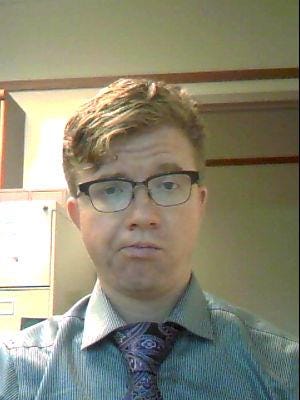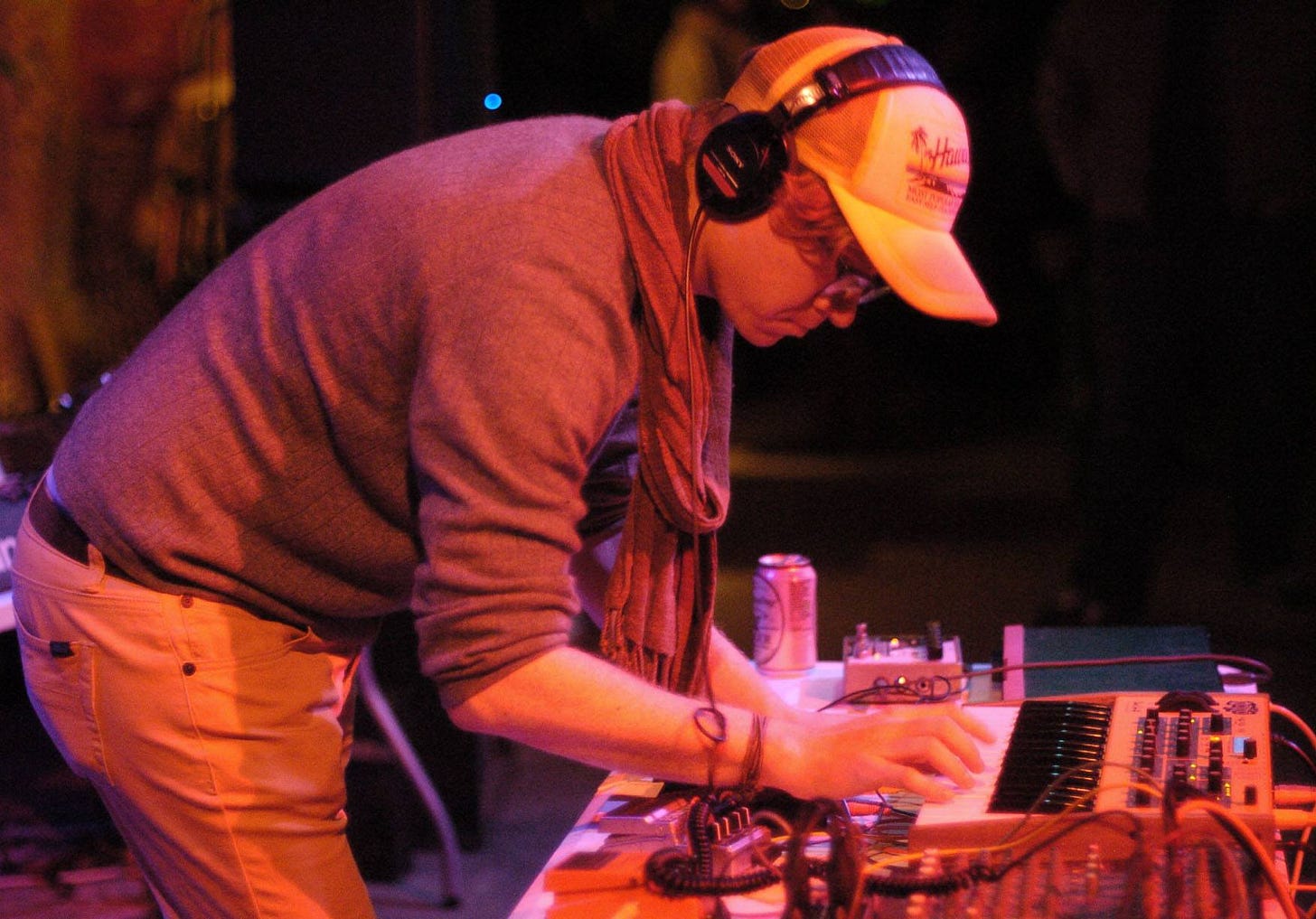👁️ The Long Road: Imagining a Slow Career
A message for twentysomethings: Don’t believe the fearmongers. Time IS on your side.
Welcome back to Dark Markets. I was recently reminded it’s a good idea to re-introduce myself, at least every once in a while: I’m David Z. Morris, a veteran finance reporter, PhD sociologist, and lapsed Japan expert in New York. I’m a former staff reporter at Fortune Magazine (where I started writing about cryptocurrency in 2013), and former columnist for the late, lamented CoinDesk. My academic work has appeared in several top-tier journals, and I’m a former visiting scholar at Geidai, Japan’s leading institution of arts and culture.
Dark Markets explores the ways financial markets are less transparent and efficient than we’ve been led to believe.
The personal development aspect of this newsletter has fallen by the wayside a bit during the book-writing process. But with that done, I’m naturally thinking about milestones and transitions. What follows is broadly intended for people who are early-ish in their careers, ambitious, who might not fit in a tidy career category – and who are maybe a little nervous about AI and the job market.

I’m 46 years old, and I’ve been some form of professional writer almost my entire adult life. I’m just about to pass a milestone that comes much earlier for a lot of working writers: publishing a book (preorders are imminent, by the way). That delay is in part because I’m pretty idiosyncratic (read: noncommercial) and bad at marketing myself.
But the bigger reason for the delay is that I’ve taken twists and turns within the broad “full time writer” remit. Most significantly, I left a fairly successful early-stage academic career when I was 33 to transition into journalism. In fact, I walked away from an academic book deal as part of that transition. I have mixed feelings about turning down the book deal – I didn’t think it would take twelve years to get another one, but I also now think my dissertation would not have made such a great book. Either way, I have zero regrets about transitioning to a new career.
Now, with the book, my career is transitioning yet again, towards more work actively supporting projects in privacy tech, while shifting my creative energies from daily beat journalism to larger book and multimedia work.
Amazingly, this is all roughly in line with a plan I’ve had in my head in some form since I was a teenager.
Maybe my career looks a little haywire from outside, but the path from academia through journalism and onward into books was consciously engineered to let me learn the knowledge and skills I wanted, while being sustainable along the way. It hasn’t made me rich, but the very unique combination of experiences and background I have now, in my forties, leaves me with huge advantages over many of my contemporaries as I go into the actual prime earning-and-doing years of my life.
Sam Bankman-Fried believed our culture’s message that taking shortcuts is the path to success. And he destroyed not just his own life, but his entire family.
I think this is an important model of careers to talk about, because so much of the current discourse targeting young people is aimed at selling urgency, verging on panic. The sense of narrowing horizons is framed in terms of AI and climate change. I think these are canards, and specifically a misdirect by powerful voices aiming to create a more passive population. But the rise of “grindset” and “optimization” rhetoric around careers is a kind of panicky, ill-conceived answer to real sociopolitical factors like stagnating class mobility, the hollowing out of the social safety net, and the rising social acceptance of dishonesty, fraud, and self-dealing.
No surprise, I’m thinking about all of this in the context of Sam Bankman-Fried and FTX. As the most recent round of book excerpts explored, Bankman-Fried and the larger techno-utopian project were largely defined by their sense of urgency – as Sam purportedly told therapist George Lerner, at age 30 he already felt he only had 5 years in which to make a positive impact on the world.
But this very sense of urgency turned Bankman-Fried into a destructive force. He cut corners, raced forward, and failed frequently, but was nevertheless handed power and status by an interlinked support network of elite institutions, investors, cheerleaders and benefactors. He found himself in a situation he doesn’t seem to have fully understood, and before he could blink had destroyed hundreds, perhaps thousands of lives. He was insulated by privilege from the many failures that preceded FTX, so never learned the hard lessons that should come naturally on the path to power.
In short, Sam Bankman-Fried believed our culture’s message that taking shortcuts is the path to success. And he destroyed not just his own life, but his entire family.
This aspect of Bankman-Fried’s story further illustrates why it’s important to teach young people that time is not their enemy. In fact, the sense of urgency instilled in Bankman-Fried, the broader promotion of hustle culture, the normalization of the idea that real winners don’t even bother to finish college – these are efforts to exploit and harm the young people these messages target, not in any way to help them. For instance, Effective Altruism and Rationalism merely echo the broader tech-elite denigration of expertise, experience, and education, a cultural agenda that leaves its victims without the truly independent power of self-determination that comes with expertise and skill.
Bankman-Fried is both a victim and a (failed) agent of this agenda. The celebration of “tech wunderkind” figures like him always excludes the role of outside figures in engineering (and then benefitting from) the meteoric rise of the Zuckerbergs of the world. By hiding in the shadows, funders like Peter Thiel have prefigured and helped bring about the world they want: one defined by total dependence of the masses on a handful of oligarchs, who dole out jobs and wealth as political favors, instead of in exchange for genuine good work.
The denigration of education and hard work, and the celebration of “instant” successes, make adherents of “hustle” culture more subject to this kind of manipulation and control by diverting them from the real path of self-empowerment for the not-spectacularly-connected.
That real path, the one that will make you stable in an unstable world, is not fast, but slow.
The Plan: Pretend to be an Academic For a Little While. Then Pretend to Be a Finance Reporter.
I’ve always known that I wanted to Be a Writer, however vague my sense of that was. I also knew from the start that it was a very, very tough career to advance in, and as the son of an engineer in central Texas, I had absolutely zero insight, entree, or external advantage in pursuing it.
It’s genuinely strange: my dear parents have always been supportive of my choices, and they’re very educated, intelligent, and big-time readers – frankly I owe my interest in words largely to my Mom and my aunt. But they still had no strong understanding that writing can be a job, much less what that might look like.
So I had to set about figuring out how a “writing career” worked, from very close to nothing, and while hopefully keeping myself fed and housed along the way. I’ve often thought about this as the career equivalent of jumping from one rock to another - but every time looking ahead to the ultimate goal on the horizon.
Naturally, you look for role models. For me, my first were my undergrad professors. But before following in their footsteps, I spent a couple of years just kind of hanging out in Austin circa 2003-2004. In school, starting from writing three-sentence CD reviews for DJs, I had worked my way up to program director at KVRX, the student radio station. I rolled that into a legendary gig working at Waterloo Records. My Waterloo manager’s husband (Eric Zappa, now at Microsoft) was part of a tech startup, the file-sharing service Audiogalaxy, where I got my first actual full-time writing job.
I’m realizing as I write this that what came next was one of my first truly insane career swerves: I quit that incredibly sweet writing gig, which might well have led to other things, to take a long, broke trip to Mexico, followed by a hitchiking jaunt across the Pacific Northwest. I don’t regret that at all and would unreservedly recommend a wild adventure to anyone contemplating one. But it did derail me job-wise: after I got back, I scraped by as a substitute teacher, then landed an entry-level administrative job at the UT Law School. I spent another year or so basically hanging out and partying, with Austin still more or less at its peak of cultural and lifestyle excellence.
In those two years I learned all manner of things, and it was a great time, but I pretty quickly got down to the work of applying to grad school. This still felt like the only real path forward that was appealing to me, and I think this was because one thing I didn’t do during my post-undergrad adventure period was seriously investigating careers. The one piece of advice that I would give to my younger self would be to invite people in careers I was curious about out to coffee. I’m not sure I would have had the guts to do it as an anxious 22 or 23 year old. But when I later started doing ‘informational interviews’ with people in fields I was hoping to get into, the floodgates really opened on my ability to navigate from one role to the next.
Anyway, my first plan was to get a doctorate and become a college professor so I’d have the freedom to write novels, which is what I really, really wanted to do. This would turn out to be a flawed premise, or at least a changing one, by the time I got my PhD.
At the same time, luckily, the decision to go to grad school was also based on listening to my perhaps truer instincts: I loved school, and I excelled at thinking in a sustained way about hard problems.
The First Turning: What if Your Career Isn’t Serving You?
I was quite successful in academia. The actual PhD coursework was nothing but six years of uninterrupted joy – so I have absolutely nothing interesting to say about that side of things.
The economic hit of the decision isn’t to be ignored, though: I was lucky enough to have a fellowship, and was still making about $20-25k a year. I lived in some very fun co-op communities, as well as some extremely dire apartments, and drank a lot of cheap beer. Just like adventurous travel, I wholly endorse the project of living on a very restrictive budget for a good cause. (I did wind up with about $25k in student debt, thanks to some bad luck related to the financial crisis. But that doesn’t seem too bad.)
While I didn’t end up in academia, my life has still more than validated my love of school. The default setting these days is to denigrate mere “book learning” or “ivory towers,” but my time in the ivory tower genuinely prepared me to move in subtle ways. I have a brutally unfair advantage in the job and career market quite literally by virtue of having taken school very, very seriously.
In the three years after finishing my doctorate, I got three high-profile single author publications under my belt, and landed two really nice postdocs – one at Geidai, and one at the University of South Florida. I met my now-wife in Florida through our work at the nonprofit experimental art space The Venture Compound. Deep down I knew I was toast the second I met her, and getting long-term shacked up contributed significantly to my decision to leave academia: The academic job market pretty much requires that you move to whatever small midwestern college will take you in your first tenure-track role, and Georgia, a painter, wanted to move to New York. Maybe that’s a lesson here: don’t let your career rule your career. Life matters.

But I began noticing other red flags as I worked my way up the academic ladder. One particular turning point was a conversation with Siva Vadyinathan, a brilliant, then up-and-coming midcareer scholar who’s now head of the Comms department at UVA. I drove Siva to the airport after a talk he gave at Iowa, and he clued me in to just how much of his time was spent grading and evaluating both undergraduate and graduate work.
This was already part of the job that I wasn’t that fond of – I loved teaching in the classroom, but grading was drudgery. More importantly, I preferred to spend my time actually creating rather than coaching others – and frankly, it’s only now that I’ve really put some stakes in the ground in the real world that I even feel qualified to teach anyone much of anything.
I also, I have to admit, was having second thoughts from an economic perspective. I was seeing fellow Iowa PhDs take salaries of $50k or less (in 2011-2012 dollars) at small, underfunded state schools, and as selfless as I had always considered myself, and as willing to be broke in the short term, I wasn’t prepared for a lifetime of penury.
Most importantly, though, I was discovering that even the intellectual endeavor of academia wasn’t all that it was cracked up to be. Publishing those three journal articles was a Kafkaesque nightmare: multiple rounds of editing, the expunging of creative strangeness, and certainly no care for craft or writing. This was driven home for me when I was offered a book contract for my dissertation (by either Wiley, Routledge, or some similar mid-prestige commercial academic publisher, I genuinely can’t remember anymore). I was told I was to have pretty much no input into things like the cover design, nor any really meaningful help editing the book into something I wanted it to be.
It all drove home for me what I had already begun to suspect – that the academy had become a gamified career ladder, more about ticking boxes than trying to create knowledge. It’s still full of good people, but I ultimately wasn’t ready to fight that fight. One day I just stopped answering the book publisher’s emails.
I’ve said I have mixed feelings about turning my back on that deal, but I also think it was necessary: you really do have decide to close one door before you can pass through to another. In practical terms, I would have had to spend another year jumping through bullshit academic book-publishing hoops, instead of figuring out my next steps. But the spiritual turn is just as important – sometimes you need a clean break before you can move forward.
You Will Live Far Longer Than You Think
I stayed in Florida for about three years after I finished my postdoc at USF, living cheap, working for peanuts at a content marketing agency, and getting my reporting career off the ground. I should be clear here that I got ridiculously lucky: Heather Muse, an acquaintance I made at an academic conference circa 2006 had, five years later, already transitioned from academia to journalism, and invited me to pitch stories to her at Fortune.
The rest is pretty much history: it turns out my social science background, and an intense interest in finance sparked by living through the 2008 crisis, had prepared me to be a very, very good technology and finance writer. Huge, immense gratitude goes out to Andrew Nusca, who saw that in me despite my lack of conventional Elite Journalism markers (Jeff John Roberts was also a huge ally and coach later on). With Andrew hugely in my corner, I was a regular Fortune contributor, then FTE contract stringer, from ~2013 to 2018. For much of that time we stayed in Florida, and I wrote a huge, labor-intensive, commercially misguided novel that might still someday see the light of day.
But soon, the portability of the Fortune contract supported our move to New York City, where I pretty quickly got poached by Breaker, then went back to Fortune full-time, then got poached again by CoinDesk, adding up to a five year run that completely transformed my life and career – and it didn’t happen until I was already 38.
There are other career-building stories to tell about this later stage of things, particularly about how some key figures like Mike Dudas helped me recognize my real value. Mike was starting up The Block around 2018, and he offered my *way* more money than I was making at Breaker to come join him there. It wasn’t the right fit, but I remain wildly indebted to Mike for teaching me – then and more explicitly alter on – to always ask for more money. Another interesting anecdote is how I forced my way back into Fortune by threatening to instead take a job at CoinTelegraph that had come my way thanks to another very generous ally, Ben Schiller.
But those are stories more to do with sharp-elbowed tactics than long-term strategy. The more fundamental point here is that careers are a long, intricate process, especially if you really want to keep your eyes on some larger prize. I definitely could have done things differently (and again, I’m still far from financially made, so throw me a subscription if you feel like it), but I have made the space that I wanted to occupy.
As another bonus, I now feel incredibly antifragile – I have a lot of options whichever way the economy or world go. I would argue this is a very important way for young people to think about the menace of artificial intelligence or, really, any other technological transformation: never, ever listen to the voices saying that education will suddenly be useless, or that you need to take shortcuts and cheat to get ahead. The truth they are hiding from you is that education is the only way to master transformation. That education can come from school or from your career, if you make constant learning and improvement your default attitude to the world.
That’s one reason I find myself in my forties more excited than ever for what’s next, equipped with a massive arsenal of tools, skills, and insight to keep heading where I’m going. The world is my absolute oyster.
And in all the wandering on my way here, I didn’t waste a second.








I am so glad I follow you. The waves of our life never completely make sense, but it is good you share all that with us.